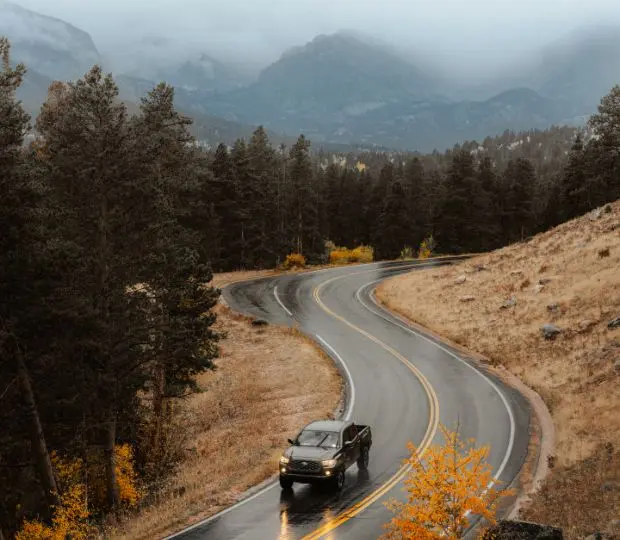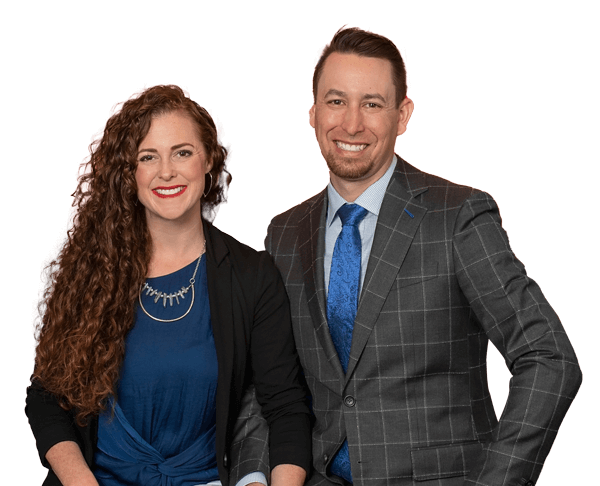Is the Driver Always at Fault in a Single Car Accident?
When it comes to single car accidents, a common misconception is that the driver is always at fault. At Meyer Injury Lawyers, we understand that these incidents can be more complex than they appear. In this blog, we'll delve into the nuances of single car accidents and explore the various factors that can influence fault and liability.
What Are Single Car Accidents?
A single car accident involves only one vehicle. These accidents can include hitting a tree, sliding off a road, or colliding with a street sign. While it might seem straightforward to assume the driver is at fault, several external factors can play a significant role.
Common Causes of Single Car Accidents in Boise

When examining the common causes of single-vehicle crashes specifically in Boise, it's important to consider the unique environmental, climatic, and infrastructural aspects of the area. Boise, with its distinct seasons and growing urban landscape, presents specific challenges for drivers. Let’s delve deeper into each of these factors:
Challenging Winter Conditions
- Snow and Ice: Boise experiences a fair amount of snowfall and icy conditions during winter. These can lead to slippery roads, reduced visibility, and challenging driving conditions, increasing the risk of single car accidents.
- Snowplows and Maintenance Vehicles: Encounters with these necessary but sometimes unexpected vehicles can startle drivers, leading to accidents if not navigated carefully.
Mountainous Terrain and Wildlife
- Curvy Mountain Roads: The roads in and around Boise's mountainous regions can be treacherous, especially for unfamiliar drivers. Sharp turns and steep inclines can result in loss of vehicle control.
- Wildlife Crossings: The Boise area is home to a variety of wildlife. Deer and other animals crossing the roads, especially during dawn and dusk, pose significant risks for drivers.
Urban Expansion and Construction Zones
- Roadwork: With Boise's rapid growth, construction zones are common. Unexpected detours, uneven road surfaces, and temporary signage can confuse drivers and lead to accidents.
- Traffic Congestion: As the city grows, so does the traffic. Congestion, especially during rush hours, can lead to stressed and distracted driving, increasing the likelihood of accidents.
Seasonal Agricultural Activity
- Agricultural Vehicles: Boise’s surrounding areas have significant agricultural activity. Encounters with slow-moving agricultural vehicles on the roads can cause accidents, particularly if drivers are impatient or not paying attention.
- Dust and Debris: During certain times of the year, agricultural processes can kick up dust or leave debris on the roads, affecting visibility and road traction.
Unique Weather Patterns
- Sudden Rain Showers: Boise experiences sudden and sometimes heavy rain showers, particularly in spring. These can create slick road conditions without much warning.
- Sun Glare: Boise's high desert climate means there are many bright, sunny days. Sun glare during sunrise and sunset can be particularly problematic for drivers.
Roadway Obstructions
Unexpected objects on the road, like fallen tree branches or debris from other vehicles, can cause a driver to swerve abruptly and lose control.
Mechanical Failures
Sudden and unforeseen mechanical issues, different from maintenance-related problems, like a snapped timing belt or an electrical system failure, can lead to accidents.
Defective Vehicle Parts
- Manufacturing Defects: Accidents caused by inherent flaws in the vehicle, such as faulty airbags, brakes, or tires, where the manufacturer may be liable.
- Inadequate Vehicle Repairs: Improperly executed repairs or maintenance by a mechanic can lead to mechanical failures that cause accidents.
Actions of Other Drivers
- Swerving to Avoid a Collision: If a driver has to swerve suddenly to avoid another vehicle's reckless maneuver, leading to an accident.
- Debris from Other Vehicles: Objects falling off another vehicle, which a driver cannot avoid in time, causing an accident.
Interventions by Third Parties
- Pedestrian Actions: Accidents caused by avoiding a pedestrian who suddenly steps onto the road.
- Objects Thrown Onto Roadways: Incidents involving objects intentionally or accidentally thrown or dropped onto the road, creating an immediate hazard.
Government or Municipal Liability
- Inadequate Traffic Control: Absence or malfunction of traffic signals and signs can lead to accidents.
- Construction Zone Mismanagement: Poorly marked or managed construction zones can create confusing and hazardous driving conditions.
In these situations, the driver might not be held liable for the accident. Instead, responsibility may fall on manufacturers, government entities, other drivers, or third parties. Drivers need to understand that not all single car accidents are the result of their actions, and there can be various external factors at play. Legal advice should be sought in such cases to properly assess liability and pursue any potential claims.
How To Determine Liability in a Single Vehicle Car Accident
We understand the complexities involved in determining liability in a single vehicle car accident. Our approach to these cases involves a comprehensive analysis of various factors to accurately assess who or what may be at fault. Here's how we approach such cases:
In-Depth Investigation of the Accident Scene
We meticulously document the accident scene, paying attention to road conditions, weather factors, and any external obstacles or hazards that may have contributed to the accident.
Vehicle Condition Analysis
Our team inspects the vehicle for any signs of mechanical failure or defects. We also review the vehicle's maintenance records to see if recent repairs or lack thereof could have played a role in the accident.
Assessment of Environmental and Road Conditions
We consider the impact of weather conditions at the time of the accident and evaluate if the road's design or its maintenance status could have been contributing factors.
Evaluation of Driver Actions and Condition
We assess the driver's behavior leading up to the accident, including any potential distractions, speeding, or impairment. Additionally, we consider the driver’s physical and emotional state, such as fatigue or stress.
Collection of Witness Testimonies
Witness statements are gathered and analyzed to provide additional perspectives on the accident, helping to corroborate or clarify the details of the incident.
Review of Traffic and Surveillance Footage
If available, we obtain and examine footage from traffic or surveillance cameras to gain a clearer understanding of the events that occurred.
Engagement of Expert Analysis
Our firm consults with accident reconstruction experts and vehicle inspection professionals to piece together the accident's cause and identify any technical factors involved.
Legal and Regulatory Review
We review relevant local traffic laws that might influence the determination of liability, ensuring all legal aspects are considered.
Insurance Policy Analysis
In cases within no-fault states, we review the involved insurance policies to understand how they might affect the case, while still pursuing the determination of liability for legal purposes.
Client Representation and Advocacy
We provide our clients with experienced legal advice, guiding them through the process, helping to gather and interpret evidence, and advocating on their behalf, especially in complex scenarios.
How Does Car Insurance Work for Single-Vehicle Accidents?
At Meyer Injury Lawyers, we often assist clients in navigating the complexities of car insurance claims following single-vehicle accidents. Understanding how car insurance works in these situations is crucial for drivers. Here's an overview:
Types of Coverage Relevant to Single-Vehicle Accidents
- Collision Coverage: This is the primary insurance coverage that applies in single-vehicle accidents. It covers damage to your vehicle regardless of who is at fault.
- Comprehensive Coverage: This covers damages to your vehicle from non-collision incidents like vandalism, theft, and natural disasters. It may also cover hitting an animal or damage from falling objects.
Determining Fault and Insurance Claims
- In single-vehicle accidents, the driver is often presumed at fault, as they are typically in control of the situation leading to the accident.
- However, if external factors (like poor road conditions or vehicle defects) played a significant role, we work to demonstrate these circumstances to insurance providers.
Filing a Claim
- Notification: Notify your insurance company as soon as possible after the accident.
- Documentation: Provide detailed information about the accident, including photos, a police report, and any other relevant evidence.
- Claim Process: The insurance company will assess the claim, which may include inspecting the vehicle and reviewing all provided documentation.
Insurance Company’s Role
- The insurer will evaluate the claim to determine the extent of their liability under the policy terms.
- They may investigate to confirm details and decide whether the policy covers the incident.
Payout and Deductibles
- If the claim is approved, the insurance company will pay for repairs or replacement, minus any applicable deductible.
- The amount paid is subject to the limits of your policy coverage.
Potential for Premium Increases
Following a single-vehicle accident claim, it’s possible that your insurance premiums may increase, as insurers may view you as a higher-risk driver.
How Can a Single Vehicle Accident Lawyer Help?
At Meyer Injury Lawyers, our dedicated team has experience in assisting clients who have been involved in single vehicle accidents. Our goal is to ensure that you receive fair treatment and that all factors contributing to the accident are thoroughly considered. Here’s how we can help:
1. Investigation and Evidence Gathering
- Comprehensive Investigation: We conduct a thorough investigation of the accident to gather all pertinent facts. This includes examining the accident scene, vehicle damage, and any relevant external factors.
- Expert Analysis: We collaborate with accident reconstruction experts, mechanical engineers, and other specialists to understand the exact cause of the accident.
2. Determining Liability
- Assessing External Factors: We evaluate whether external factors such as road conditions, vehicle malfunctions, or other drivers' actions contributed to the accident.
- Legal Interpretation: Our experience in local and state laws allows us to accurately interpret how these laws apply to your specific case.
3. Dealing with Insurance Companies
- Negotiating with Insurers: We handle all communications and negotiations with insurance companies to ensure your claim is fairly evaluated and that you receive the maximum compensation you are entitled to.
- Policy Analysis: Our team reviews your insurance policy details to understand the coverage scope and identify any potential challenges or opportunities in your claim.
4. Legal Representation and Advocacy
- Court Representation: If your case goes to court, we provide robust legal representation, ensuring your rights are protected throughout the legal process.
- Advocacy for Fair Compensation: We advocate for fair compensation for damages, including vehicle repairs, medical expenses, lost wages, and any other applicable damages.
5. Guidance and Support
- Legal Advice: We offer clear, comprehensive legal advice at every step of the process, helping you make informed decisions.
- Emotional Support: Understanding the stress that can accompany such incidents, we provide compassionate support to ease your concerns.
6. Handling Complex Scenarios
- Addressing Unique Circumstances: Whether it’s dealing with government entities in cases of poor road maintenance, manufacturers in the event of vehicle defects, or unusual insurance scenarios, we are equipped to handle complex cases.
Ready for Legal Assistance? Contact Meyer Injury Lawyers Today!
Have you been involved in a single vehicle accident and are unsure about your next steps? Don't navigate this complex situation alone. At Meyer Injury Lawyers, we are dedicated to providing you with the experienced legal support and guidance you need. Our experienced team is ready to investigate your case, deal with insurance companies on your behalf, and fight for the fair compensation you deserve.
Don’t wait—every moment counts in building a strong case. Contact us today for a free consultation, and let us help you get back on the road to recovery. Your peace of mind is our priority. Contact us now to learn more about how we can assist you.


